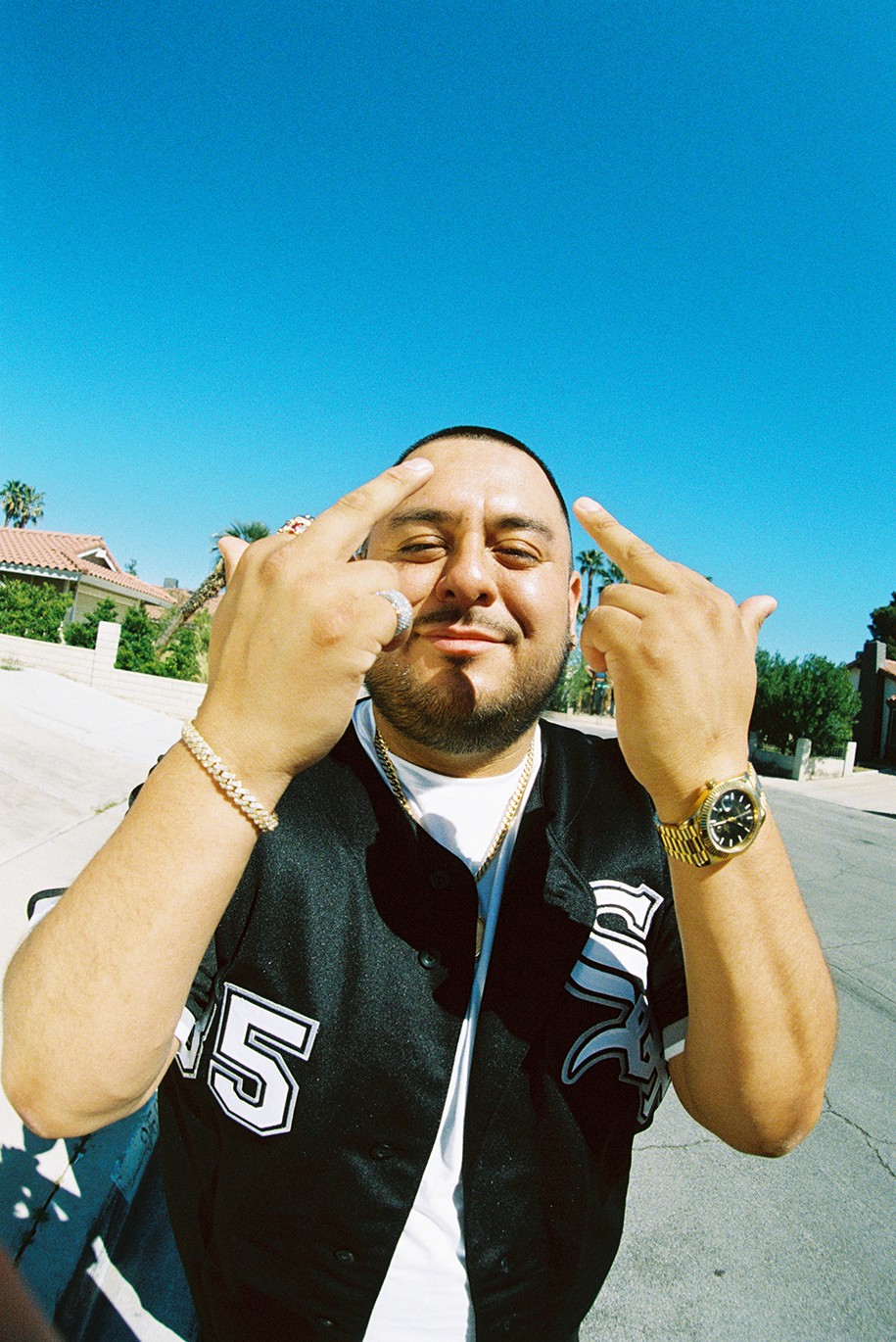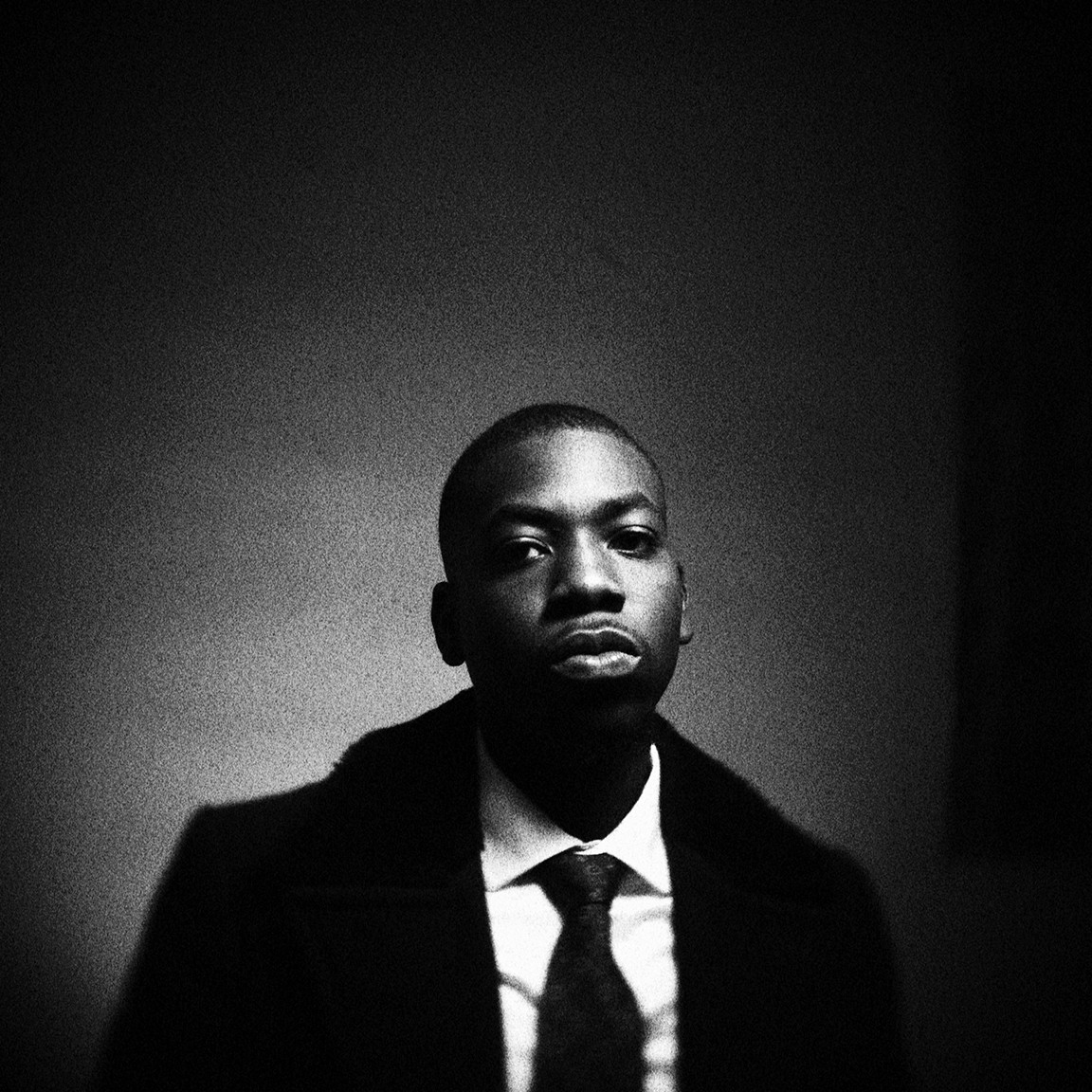Exclusive Interview
Dec 8, 2024
Produced by: Andrej Aroch
Edited by: Rudy Manager & Andrej Aroch
Akachi – From EDM Roots to Producing for Chief Keef, Rod Wave & JT
In this exclusive interview with Studio Talks, we sit down with the incredibly talented producer Akachi, whose innovative sound and relentless passion for his craft have earned him recognition in the music industry. From his early fascination with EDM and dance music to his transition into hip-hop production, Akachi shares his journey, creative process, and the pivotal moments that have shaped his career. He reflects on working with major artists such as Chief Keef, Rod Wave, JT, and more, while offering a glimpse into his future goals, including plans to launch his own label and contribute to the Boston music scene. The interview was conducted by Andrej Aroch via video call on November 13th, 2024.
“Make music your everything if you want to go far”
- Akachi
Can you share how you first got interested in music and how that initial interest developed into what you're doing now?
So, my first interest in music actually started because I wanted to be a DJ. I was probably around 11 or 12, just getting to that age where you start exploring hobbies and figuring out what you like. I was really into dance music at the time—lots of deep house, future house, that kind of stuff. I remember one Christmas I asked for a little iPad DJ controller, and I was just messing around with it, listening to a lot of EDM, and even watching Tomorrowland live. I became pretty obsessed.
That obsession led me to start tuning into a radio station on SiriusXM—either BPM or one of the other electronic channels. I’d listen all the time, especially in my parents’ car. This was around the time when groups like Flosstradamus and DJ Carnage were starting to blend hardstyle with trap music. Flosstradamus, specifically, was mixing hardstyle with trap drums, and DJ Carnage was creating what was called "Festival Trap" music.
I still remember hearing this song for the first time: “Total Recall” by Flosstradamus. It was this crazy hardstyle-trap mashup with a big room melody and intense drums, and it blew me away. I started getting really into Flosstradamus—they were a duo back then—and I’d watch them work with drum kits and software. They were using FL Studio and maybe some Ableton, too, but FL was their main DAW. They even used a Lex Luger drum kit, which was cool because I’d always been into rap and different genres. That started me down a rabbit hole.
This was around the time that producers like TM88, Southside, Sonny Digital, and Metro Boomin were just starting to gain attention—probably around 2011 or 2012. And from there, I got really into watching producer videos, downloaded FL Studio for myself, and, the rest is history.
Can you share a bit about when you first started producing? Did you begin with hip-hop, or did you stick to EDM since you mentioned being interested in that?
I actually started with a lot of EDM. I wasn’t particularly skilled at it in the beginning, but I was really into doing mashups. I’d take older songs and rearrange them, add some bumpier kicks, different parts—mostly dance music elements. It took me a while to find the kind of sound I have now.
My producer name, Akachi, is because I was a big fan of this French DJ named Tchami. I wanted a name that had a similar vibe. “Akachi” also has a deeper meaning; it translates to “wave in the hands of God.” I thought it fit because I was a DJ setting a trend and it was a cool match.

What’s your opinion on new technologies in the music industry, especially with the rise of AI?
Honestly, it’s a bit scary to me. I don’t really use AI in my music. I’ve used Splice before, which has a tool that helps fit loops to your melody—that’s probably the closest I’ve come to using AI. I only use it occasionally, mostly when experimenting with other genres.
I feel a bit uneasy about it. I know how special it feels to create something from scratch without relying on outside tools. There’s something unique about that process that I wouldn’t want to lose. AI might be useful in certain ways or help some people create, but I’m kind of on the fence. I love the experience of creating on my own, letting the music come directly from me, without extra assistance.
I’m curious to see where AI goes in music, but right now, it’s not something I use in my daily workflow.
You recently produced JT’s single “OKAY.” Can you share the backstory behind that track?
That beat goes back to my college days, around 2019. I had a cool little setup in my room—I was a senior, either in 2019 or early 2020. I’d just gotten some new hardware that I was excited to experiment with. I had picked up a Proteus 2000 module from E-MU Audio, along with some other hardware I was testing at the time. My goal was to make beats for Chief Keef. This is around the time when I first started working with him. I knew he liked those classic trap sounds, but I wanted to keep it fresh, so I was experimenting with something a bit different. I ended up passing the beat to a former collaborator, who wrote the track with another writer. Fast-forward a few years, and I get a random text saying, “Hey, that old beat you made—it’s going to be on a big song with JT.”
It was crazy because they mentioned the beat, and I was like, “No way, that one?” It was a beat I’d sent to so many artists, and every one of them had passed on it. But it ended up landing in the right hands at the right time.
Is there a song or project you worked on that holds a special place in your heart?
One of my favorites is definitely “Bitch Where” by Chief Keef. That song is special to me, and I’m proud to be part of it. Chief Keef was one of my favorite artists growing up, so getting to work with him and create something alongside someone as creative as he is was amazing.
What’s crazy is how that beat came together. My friend Sonickaboom and I actually made it in his grandparents’ basement while we were in college. We were messing around one weekend, and it turned into something huge. Recently, my group Bink Boys performed as an opening act, and seeing people react to that song was incredible. People were crying and screaming the lyrics. It was surreal.
Another favorite of mine is “Federal Nightmares” by Rod Wave. That one holds a special place for me too. It’s one of the projects I’m most proud of.
Do you have any dream collaborations with artists you’d love to work with?
One of my top goals is to work with Travis Scott. I tell TM this all the time—I really want to make that happen. I’d also love to work with Tame Impala, though I’m not sure how open they’d be to it. I’m a huge Tame Impala fan. Another dream collaboration would be with Blink-182. I’d love to work with them. I’d also love to work with Young Thug—he’s an absolute creative genius.
What advice would you give to new producers who are just starting out and trying to establish themselves in the music industry?
I’d say two things. First, make music your everything if you want to go far. That’s what it takes.
Second, focus on being yourself and being unique. Don’t worry about sounding like anyone else or comparing your work to others. Just create what you enjoy and what resonates with you. I believe that’s what’s has gotten me this far. It took a little longer to catch on because being yourself can make people uncomfortable, and they might not accept it right away. But sticking with it, staying true to yourself creatively, and not trying to copy others is what’s brought me opportunities— like working with TM and other collaborators. That’s been the key to my career, and I believe it’s the most important advice I can give.

How important is it to put yourself out there on social media, like YouTube or Instagram, as an up-and-coming producer? I’ve noticed you post a lot of your beats on Instagram—do you think that’s important for someone just starting out?
Personally, I’m not the biggest fan of social media, but I use it regularly to connect directly with my fans. It’s really just another way for me to share my work. Posting my beats is important to me because I know how much I appreciated hearing snippets from other producers when I was coming up. I’d religiously listen to beat snippets or early versions of songs.
I think sharing your beats, or just sharing your art in general, helps show people who you are and what you can offer. Growing up, I didn’t really have a network or access to studios where I could play my beats for others, so social media became a way for me to market myself. That’s why I think it’s important. I’m not a fan of the whole “don’t post anything, be mysterious” approach. For some people, it works, but I think you should share your art. It’s important.
What are your long-term plans? Where do you see yourself in five years?
In five years, I want to start my own imprint and label. I’m aiming to have more creative control over projects—curating them, A&Ring, and being involved in the entire production process, from mixing and mastering to writing and marketing. I want to get deeply involved in that side of things.
Right now, I’m already working on that. I have a project coming up with an artist named $amaad, who’s from LA. I’ve been focusing more on that side of production because I feel like I’ve already put in my 10,000 hours making beats. Now, I’m looking to grow even more, create as much amazing music as possible, share it with people, and hopefully inspire others along the way.
Another big goal is to build the label and start organizing events that help younger producers. I want to support the next generation and contribute to growing the music scene, especially in Boston. Even though I’m originally from Cape Cod, I’m living in Boston now, and I’m really focused on helping develop the music scene here. That’s something I’m really passionate about.
Follow Akachi on Instagram: @akachiglo
More Blog Posts
See our latest blogs















